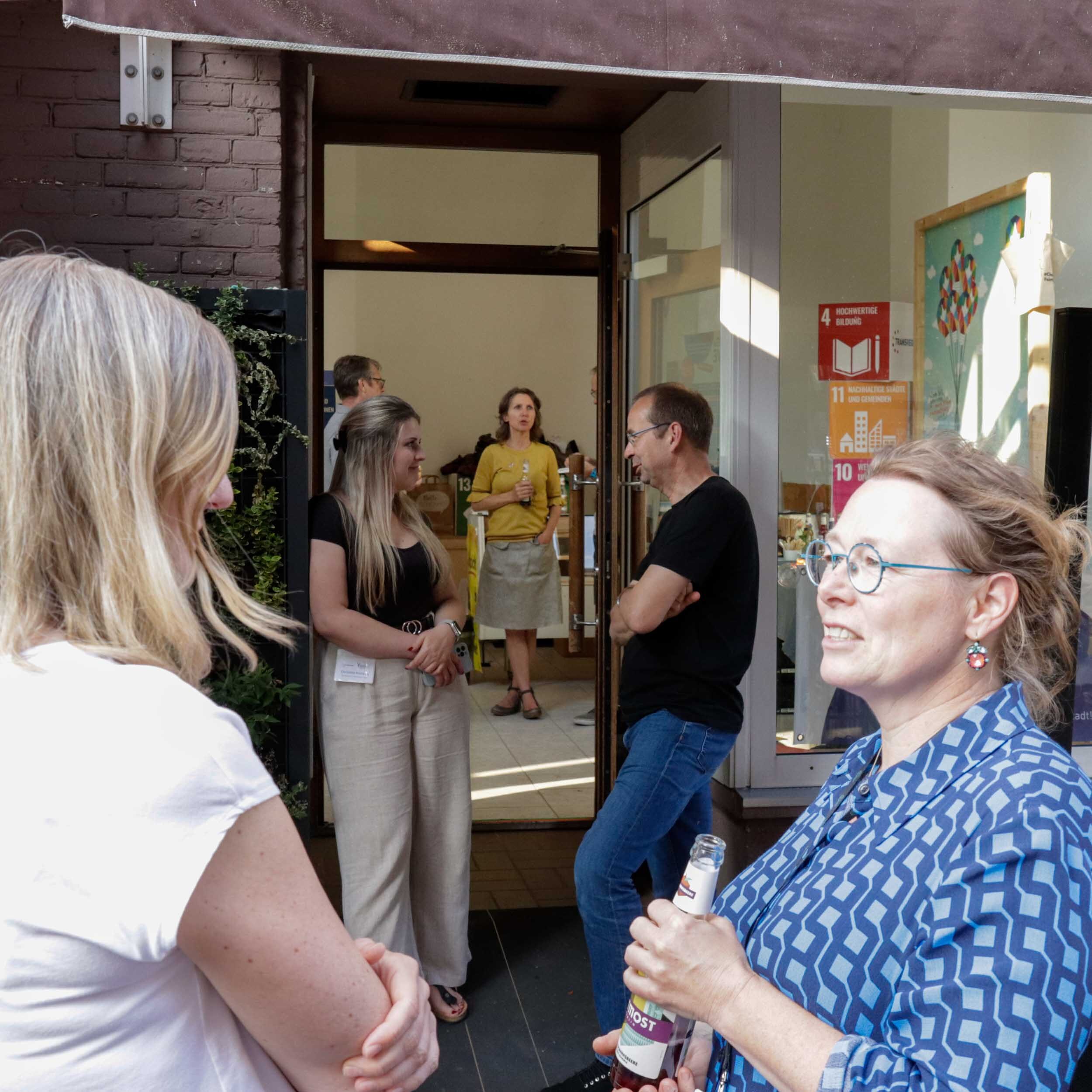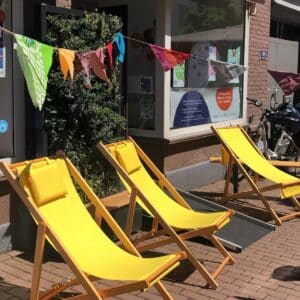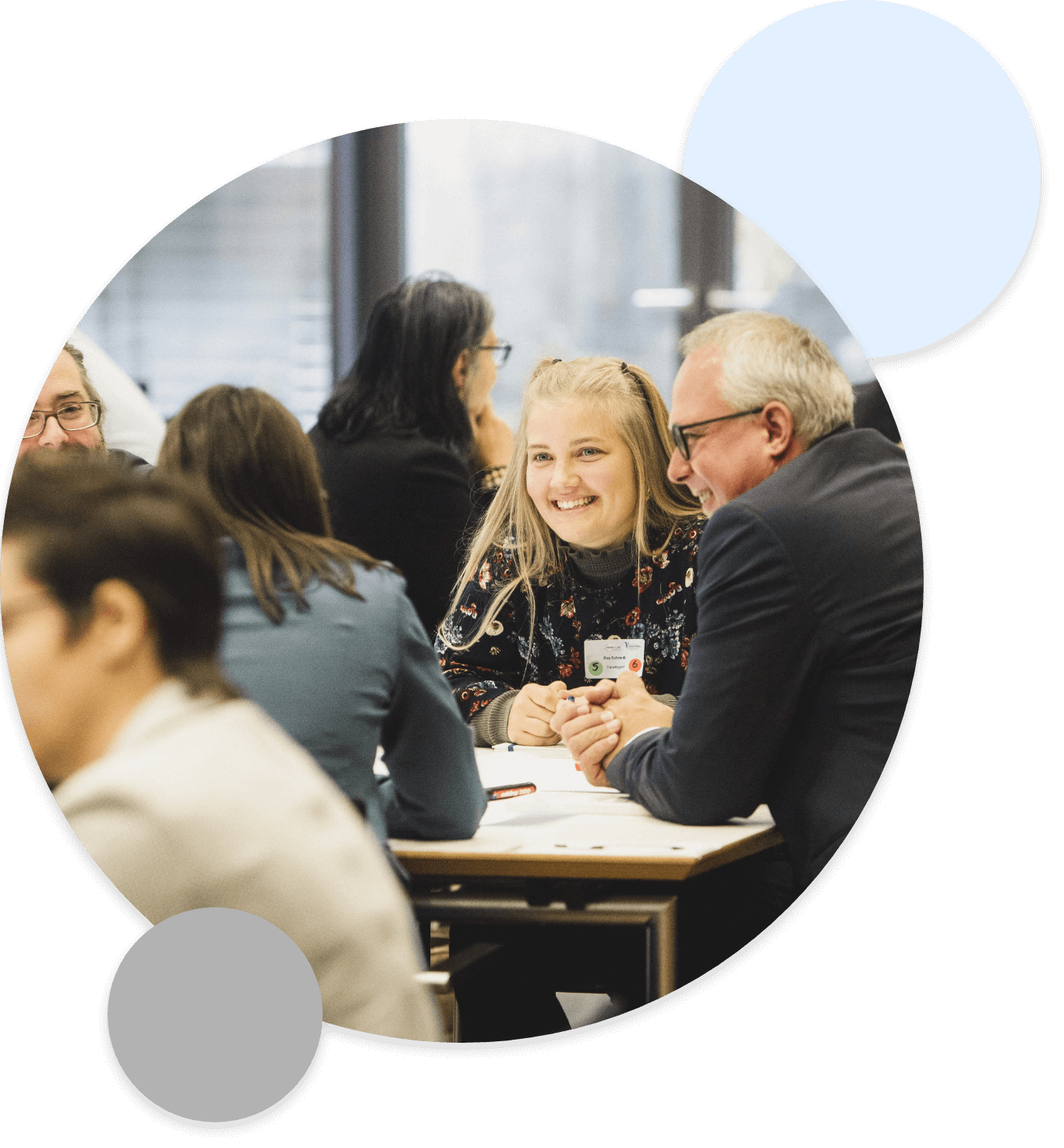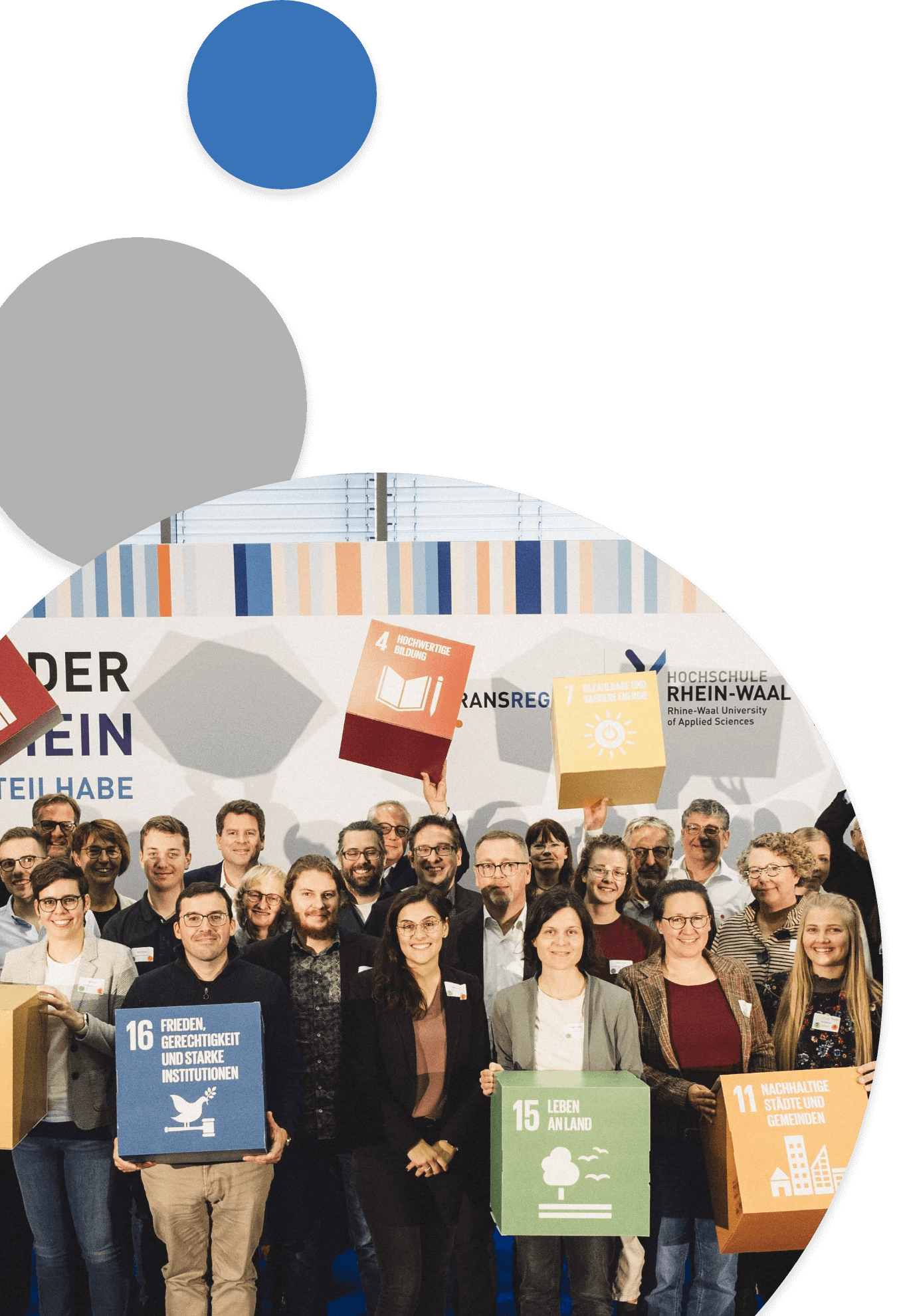
Between restraint and interest – DialogPunkt Kleve in retrospect
On the evening of 28 June, DialogPunkt Kleve was officially wound up after four weeks. 20 events aimed at a wide variety of target groups have aroused curiosity, led to fruitful discussions, provided insights and allow us to look positively and thoughtfully towards a sustainable future.
From 6 to 28 June 2024, DialogPunkt Kleve, organised by us in cooperation with the city of Kleve, was a meeting point for exchanging ideas, presenting sustainable projects, a starting point for informative excursions and more. Three themed weeks focussed on different aspects of sustainability: sustainable community, nutrition and mobility.
Positive yet thoughtful atmosphere at the closing ceremony
On Friday evening, DialogPunkt Kleve was bid farewell with music and snacks. Short speeches and a photo show of the events projected onto the walls gave an insight into the past four weeks.

Florian Gaisrucker, Innovation Manager Society in the TransRegINT project at Rhine-Waal University of Applied Sciences and co-responsible for the programme items organised by the university, was impressed by the range of topics and the responses from participants. “Your work makes a difference. You have created a platform for very specific topics,” said Philipp Cantos from the city of Kleve. With DialogPunkt Kleve, a participatory space has been created that makes sustainable activities visible and tangible.
Pascale van Koeverden, responsible for sustainability in the Department of Climate Protection, Environment and Sustainability at the City of Kleve, described DialogPunkt Kleve as the “first regional office for sustainability in the Lower Rhine region”. “We have gained experience and built a foundation.” Participants had expressed a desire for a regular forum. She noted that environmental education topics were in demand among the target group of younger people. Older participants, on the other hand, also felt that other sustainability topics, such as sustainable community, were addressed. The middle generation, people aged between 30 and 60 or Generation XY, were more difficult to reach during the four weeks. In addition, actual hands-on formats and activities were more popular than lecture formats, for instance. This was confirmed by Christina Martens, Coordinator of the Interaction Hub at TransRegINT. She drew attention to the future: “With our upcoming DialogPunkte, we need to respond even more specifically to the individual needs of the citizens of the various cities and municipalities and do more networking. We need key people who act as multipliers in society and work with us to build a sustainable future.” She concluded the official part of the evening with a big thank you to all contributors and participants.
More participation desired

Although located in Kleve’s pedestrian zone, the DialogPunkt Kleve unfortunately attracted fewer visitors than initially anticipated. It was intended to be just as a sports broadcaster once put it in a nutshell in its advert: “In the middle of it all instead of just there.” Colourful posters adorned the windows, yellow sun loungers stood invitingly in front of the façade during opening hours in good weather, and yet many only took a curious glance at the shop and hurried on.
Prof Dr Peter Kisters, Vice President for Research, Innovation and Knowledge Transfer at Rhine-Waal University of Applied Sciences and TransRegINT project manager, comments: “The TransRegINT team has worked hard with the city of Kleve to create a centrally located space that aims to involve the citizens of Kleve in the complex process of change towards sustainability. As soon as the programme was put together, it became clear how numerous, but also diverse, the wishes and needs were. Unfortunately, the interest and participation of third parties fell short of expectations.” Questions that we and the people responsible at the city of Kleve are currently asking include the reasons for the lack of interest. It surely cannot be due to the European Football Championship 2024 taking place at the same time. Is society tired of the sustainability debate? Were topics chosen incorrectly or times set inappropriately? We will sit down together in the coming weeks to review the concept, the individual events and the location.Peter Kisters is already looking to the future: “The experience we have gained is valuable for planning future dialogue points in other municipalities in the Lower Rhine region.”
Outlook
The Kleve DialogPunkt Kleve was the first regional office that we initiated. In the coming months and years, further DialogPunkte are to follow in the Lower Rhine region. To this end, we already are in close talks with local authorities on the left and right bank of the Rhine. Interested municipalities are cordially invited to get in touch with Christina Martens, Interaction Hub Coordinator at TransRegINT, to discuss formats and opportunities for cooperation.




Kommentare